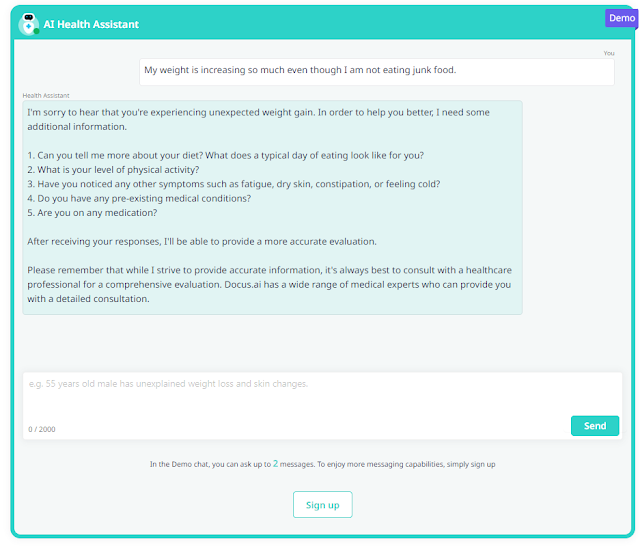Microsoft is one of the most valuable companies in the world, with a market capitalization of over $2.2 trillion as of April 2023. The tech giant has been dominating the cloud computing market with its Azure platform, which offers a range of services and solutions for businesses and developers. But Microsoft is not resting on its laurels. It is also investing heavily in artificial intelligence (AI), which is widely seen as the next frontier of innovation and growth.
AI is the field of computer science that aims to create machines and systems that can perform tasks that normally require human intelligence, such as understanding natural language, recognizing images, generating content, playing games, and making decisions. AI has the potential to transform various industries and sectors, such as healthcare, education, entertainment, finance, manufacturing, and more. According to a report by PwC, AI could add up to $15.7 trillion to the global economy by 2030.
Microsoft is well-positioned to capitalize on this opportunity, as it has been developing and deploying AI technologies across its products and services for years. Microsoft has also partnered with OpenAI, one of the leading research organizations in AI, to co-develop and commercialize cutting-edge AI models and applications. Microsoft's strong Q3 FY 2023 results also indicate it's dominant position because of innovation in Cloud and AI.
Among the tech giants that are competing in the AI race, Microsoft stands out as the clear leader. The company has been investing heavily in AI research and development for decades, and has built a strong portfolio of products and services that leverage AI capabilities across various domains. Microsoft has also been collaborating with academia, government, and other stakeholders to advance the ethical and responsible use of AI for the benefit of society.

The company's AI-powered products and services are driving growth across its business segments, from cloud computing to gaming. Moreover, the COVID-19 pandemic has accelerated the adoption of digital technologies, leading to an increased demand for AI-powered solutions. As a result, Microsoft's stock has been on an upward trajectory, and many analysts believe it has significant room for growth. The company's focus on AI and its strong financials make its stock a must-buy for investors looking to capitalize on the rapidly expanding AI industry.
This blog post delves into the compelling reasons why investing in Microsoft stock is highly recommended following its impressive lead in the AI race. Furthermore, it examines the potential for Microsoft to maintain its market dominance in the long term.
Microsoft's AI vision and strategy
Microsoft's vision for AI is to empower every person and every organization on the planet to achieve more. The company believes that AI can augment human capabilities and enhance human creativity, productivity, and well-being. To realize this vision, Microsoft has adopted a comprehensive and holistic strategy that covers four pillars: innovation, democratization, trustworthiness, and inclusiveness.
Microsoft is at the forefront of AI innovation, with cutting-edge research labs around the world that produce breakthroughs in fields such as computer vision, natural language processing, speech recognition, machine learning, and deep learning. The company also has a strong track record of translating research into products and services that deliver value to customers and partners. Microsoft is committed to democratizing access to AI for everyone.
The company aims to make AI easy to use, so that anyone can build, deploy, and manage AI-powered solutions without needing to have advanced technical skills. Some examples of Microsoft's AI innovations include:
Microsoft Azure: The cloud platform for AI
Microsoft Azure is the world's second-largest cloud computing service, behind Amazon Web Services (AWS). But when it comes to AI, Azure has a clear edge over its rivals. Azure offers a comprehensive suite of AI tools and capabilities, such as Azure Machine Learning, Azure Cognitive Services, Azure Bot Service, Azure Databricks, and more. These enable developers and businesses to build, deploy, and manage AI applications at scale and with ease.
Azure also has a strong presence in the emerging fields of quantum computing and edge computing, which are expected to revolutionize AI in the future. Quantum computing promises to solve complex problems that are beyond the reach of classical computers, while edge computing enables AI to run on devices closer to the source of data, such as sensors and cameras. Microsoft is developing its own quantum hardware and software stack, as well as Azure IoT Edge, a service that allows users to run AI models on edge devices.
According to a report by IDC, the global spending on cloud-based AI services will grow from $12 billion in 2019 to $57 billion in 2024, at a compound annual growth rate (CAGR) of 36%. Microsoft is well-positioned to capture a large share of this market with its Azure platform.
Microsoft 365: The productivity suite powered by AI
Microsoft 365 is the company's flagship productivity suite, which includes popular applications such as Word, Excel, PowerPoint, Outlook, Teams, and more. Microsoft 365 has over 300 million active users worldwide, making it one of the most widely used software products in history.
But Microsoft 365 is not just a collection of apps. It is also a platform that leverages AI to enhance the user experience and productivity. For example,
Microsoft 365 uses AI to provide personalized recommendations, insights, and suggestions based on the user's context and preferences. It also uses AI to enable natural language interactions, such as voice commands and conversational agents. And it uses AI to automate tasks and workflows, such as transcription, translation, summarization, and more.
Microsoft 365 is constantly evolving and adding new features that make use of AI. For instance, in 2020, Microsoft launched Project Cortex, an AI-powered service that creates knowledge networks from data across Microsoft 365 apps. It also launched Microsoft Viva, an employee experience platform that uses AI to deliver insights and resources for learning, wellbeing, engagement, and collaboration.
Microsoft 365 is not only a revenue generator for Microsoft but also a strategic asset that strengthens its position in the enterprise market. By offering an integrated and intelligent productivity suite that works seamlessly across devices and platforms, Microsoft can attract and retain customers who value convenience and efficiency.
Microsoft Research: The innovation engine for AI
Microsoft Research (MSR) is one of the largest and most influential research organizations in the world. MSR has over 1,000 researchers across 13 labs in six continents, working on cutting-edge topics in computer science and related fields. MSR has made significant contributions to the advancement of AI over the years, such as developing breakthrough algorithms for deep learning, natural language processing, computer vision, speech recognition, and more.
MSR also collaborates with academia, industry, and government to foster innovation and solve global challenges with AI. For example, MSR participates in the Partnership on AI, a multi-stakeholder initiative that promotes ethical and responsible use of AI. MSR also supports the OpenAI Foundation, a non-profit research organization that aims to create
artificial general intelligence (AGI), a level of AI that can perform any intellectual task that humans can.
Bing
Microsoft's search engine has been revamped with a new AI chatbot feature that allows users to interact with it using natural language. Bing also leverages OpenAI's DALL.E model to generate images based on text queries. Bing has been gaining popularity and market share in recent months, especially after reports that Samsung might replace Google as the default search engine on its devices.
Edge
Microsoft's Edge browser is becoming a gamechanger with its new AI features that can help users with various tasks on the web. The browser is powered by a new AI model called Prometheus, which is based on OpenAI's ChatGPT technology and optimized for search.
The browser has a new sidebar that allows users to
chat with the Bing AI, get complete answers to their questions, and even generate content such as emails, itineraries, or quizzes. The browser also has a new interface that matches Windows 11's design language and offers better search results with the new Bing engine. Microsoft claims that the new Edge and Bing are reinventing the web experience by providing an AI copilot for users.
ChatGPT
Microsoft's chatbot powered by OpenAI's ChatGPT model is one of the most advanced conversational agents in the world. ChatGPT can generate coherent and engaging responses to any text input, using natural language understanding, generation, and reasoning. ChatGPT can also create content such as poems, stories, code, essays, songs, celebrity parodies, and more.
Xbox
Microsoft's gaming console uses AI to enhance gaming performance, quality, and immersion. For example, Xbox Series X|S uses machine learning to upscale games to 4K resolution, reduce loading times, and improve frame rates. Xbox also uses AI to personalize game recommendations, create realistic game characters, and enable voice control.
Conclusion
"Microsoft has a long history of leading the technology industry, and with their focus on AI, they are well-positioned to continue that dominance for years to come." - Satya Nadella, CEO of Microsoft.
Microsoft's position as a leader in the AI race and its continued investment in the technology make it a strong contender for investment in the stock market. The company's focus on AI has the potential to generate significant returns for investors in the long run. With a solid financial track record and a strong portfolio of products and services, Microsoft is well-positioned to continue its dominance in the market. As always, it is important to conduct thorough research and consider all factors before making any investment decisions. However, Microsoft's strong position in the AI race should not be overlooked by investors seeking long-term growth opportunities.













No comments: